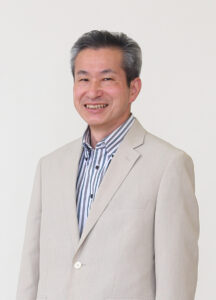YOSHIDA Kazuhiro
Professor
- M.Phil., University of Sussex
- yoshidak[a]hiroshima-u.ac.jp
*Please replace [a] with @ when sending e-mail.
Major Professional Backgrounds
- Hiroshima University, Center for the Study of International Cooperation in Education (2006)
- Engineering Consulting Firms Association, Japan, Researcher (1990-1991)
- Japan Bank for International Cooperation, Sector Strategy Development Dept., Director/Advisor (2001-2006)
- World Bank, Human Resources Economist, Africa Region; Operations Officer, Human Development Network Vice President’s Office (1993-2005)
Please refer to the following link for more research achievements. Kazuhiro Yoshida (hiroshima-u.ac.jp)
Research Areas and Themes
Educational development in Africa, Asia, and other developing countries has made significant progress in the area of access to services after the World Conference on Education for All in 1990. However, inclusive learning and acquisition of outcomes remain a major unresolved issue. Why do these problems persist despite continued efforts by the government for many decades? What missing factors or functionality failures exist among education policy, its implementation, and producing the expected results? How can international education cooperation be more effective? With these underlying issues in mind, I am working on the following research topics:
(1) Analysis of education policies and education reform in developing countries and research on whether education policies and reform work effectively in solving the issues of educational practices at the field level; (2) research on the effectiveness and issues of various modalities of international education cooperation in developing countries by bilateral aid through Official Development Assistance and international mechanisms of support, such as the World Bank and Global Partnership for Education; (3) research on the characteristics of the global education agenda, such as EFA and SDG4 and how they influence education policies in developing countries and international education cooperation; (4) research on policies and practices of skills development and the use of acquired skills in developing countries.
Research Areas and Themes of the Students
Education policy, SDG4 as the global education agenda, issues of international education cooperation, and specific issues that feature these thematic areas, such as fee-free education, decentralization, factors impeding learning continuity, school and community, school management and school leadership, teacher development policy, student motivation/attribution and learning performance, primary education, secondary education, vocational education, etc.
The main research topics of the supervising students are as follows:
Master’s thesis = M
Doctoral dissertation = D
- Teachers’ Knowledge and Perception in Implementing Critical Thinking Skills Practice in Chemistry: A Case of Upper Secondary Schools in Kampong Chhnang Province, Cambodia [M]
- Why Do Parents Choose Private or Public Primary Schools? Parents Perspectives on Schooling in Bamyan Province, Afghanistan [M]
- Intrinsic and Extrinsic Motivation: A Comparative Study between Migrant and Local Children in Urban Public Middle School in China[M]
- Effects of Headmasters’ Transformational and Transactional Leadership Styles on Teachers’ Job Satisfaction: A Case of Primary Schools in Nyamasheke District in Rwanda [M]
- The Effects of Family Features on Academic and Social-emotional Development of Primary School Children: A Case Study of Left-behind Children in Shennongjia, China [M]
- Educational Aid Meeting Grassroots Needs: Insights from Teachers’ Help-Seeking in Mozambique [D]
Message to Prospective Students
The importance of education is undeniable. You are welcome to study here if you are interested in research on education policy, education improvement at the field level, strength of Japanese education and its implications on education issues in developing countries, or the effectiveness of international education cooperation by UNESCO, the World Bank, or JICA.

